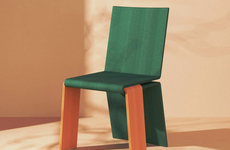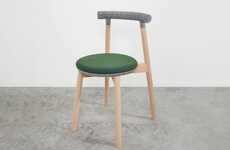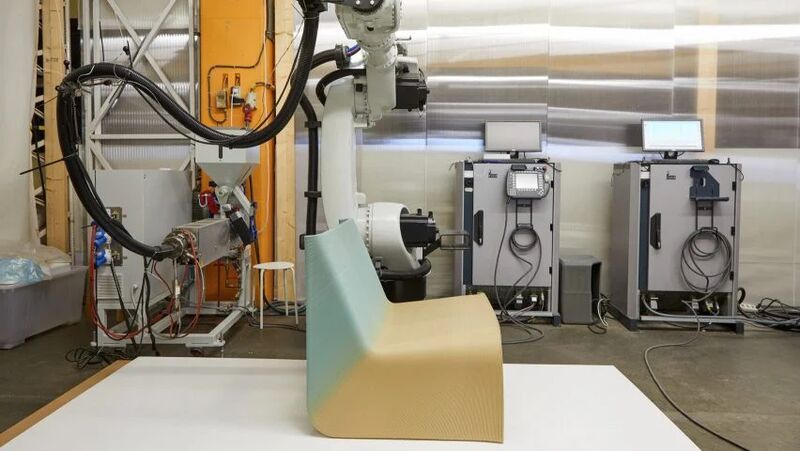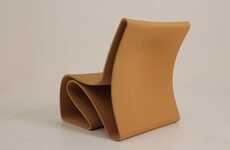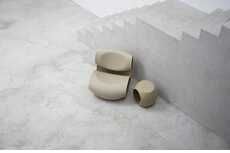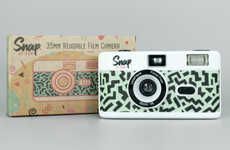The New Raw Studio is Recycling Old Experiments into Chairs
Elena Rahman — November 8, 2021 — Eco
References: thenewraw.org & dezeen
The New Raw studio, based in Rotterdam, is recycling misprints and prototypes from previous furniture projects to create a limited-edition chair. Dubbed the Ermis, the chair is made from a 3D-printed mono-material. The limited-edition monoblock seat was inspired by the brand's mission to repurpose its scrap materials, thereby creating a durable, zero-waste object.
Each Ermis chair is made from layers of polypropylene plastic. The company aimed to find a way to "rescue this material and reduce the volume of waste coming from the research and development o the studio." The chair's design features a gentle color gradient, fading from baby blue to an earth hue of yellow. The Ermis chair includes adhesives, resins, and finishings to finish the design, allowing it to be easily recycled at the end of its life.
Image Credit: The New Raw
Each Ermis chair is made from layers of polypropylene plastic. The company aimed to find a way to "rescue this material and reduce the volume of waste coming from the research and development o the studio." The chair's design features a gentle color gradient, fading from baby blue to an earth hue of yellow. The Ermis chair includes adhesives, resins, and finishings to finish the design, allowing it to be easily recycled at the end of its life.
Image Credit: The New Raw
Trend Themes
1. Upcycled Furniture - The trend of upcycling discarded materials into furniture pieces could provide an opportunity for businesses to reduce waste and create unique, sustainable products.
2. Additive Manufacturing - The use of 3D printing to create one-piece, sustainable furniture could disrupt traditional furniture manufacturing processes and provide more sustainable alternatives.
3. Zero-waste Design - The movement towards zero-waste designs that use scrap materials and have easily recyclable components could lead to new disruptive innovation opportunities for businesses looking to reduce their environmental impact.
Industry Implications
1. Furniture - Along with sustainable materials, manufacturers in the furniture industry could explore one-piece 3D printing techniques to create unique designs while reducing waste and overhead costs.
2. Sustainability - Businesses specializing in sustainability solutions could explore upcycling and zero-waste design as potential disruptive innovation opportunities to help tackle the global waste crisis.
3. Manufacturing - With additive manufacturing continuing to evolve, manufacturers could look into integrating 3D printing and zero-waste design when creating products and prototypes to reduce waste and increase sustainability.
4.7
Score
Popularity
Activity
Freshness


